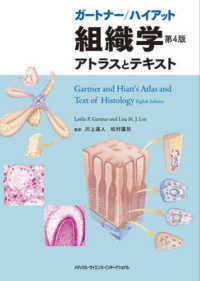- ホーム
- > 洋書
- > ドイツ書
- > Social Sciences, Jurisprudence & Economy
- > Politics, Society, Work
- > political science
Full Description
Focusing on human association, the authors help readers uncover the manifold structures humans have devised that allow them to tame the turbulence and live lives more harmoniously with others.








